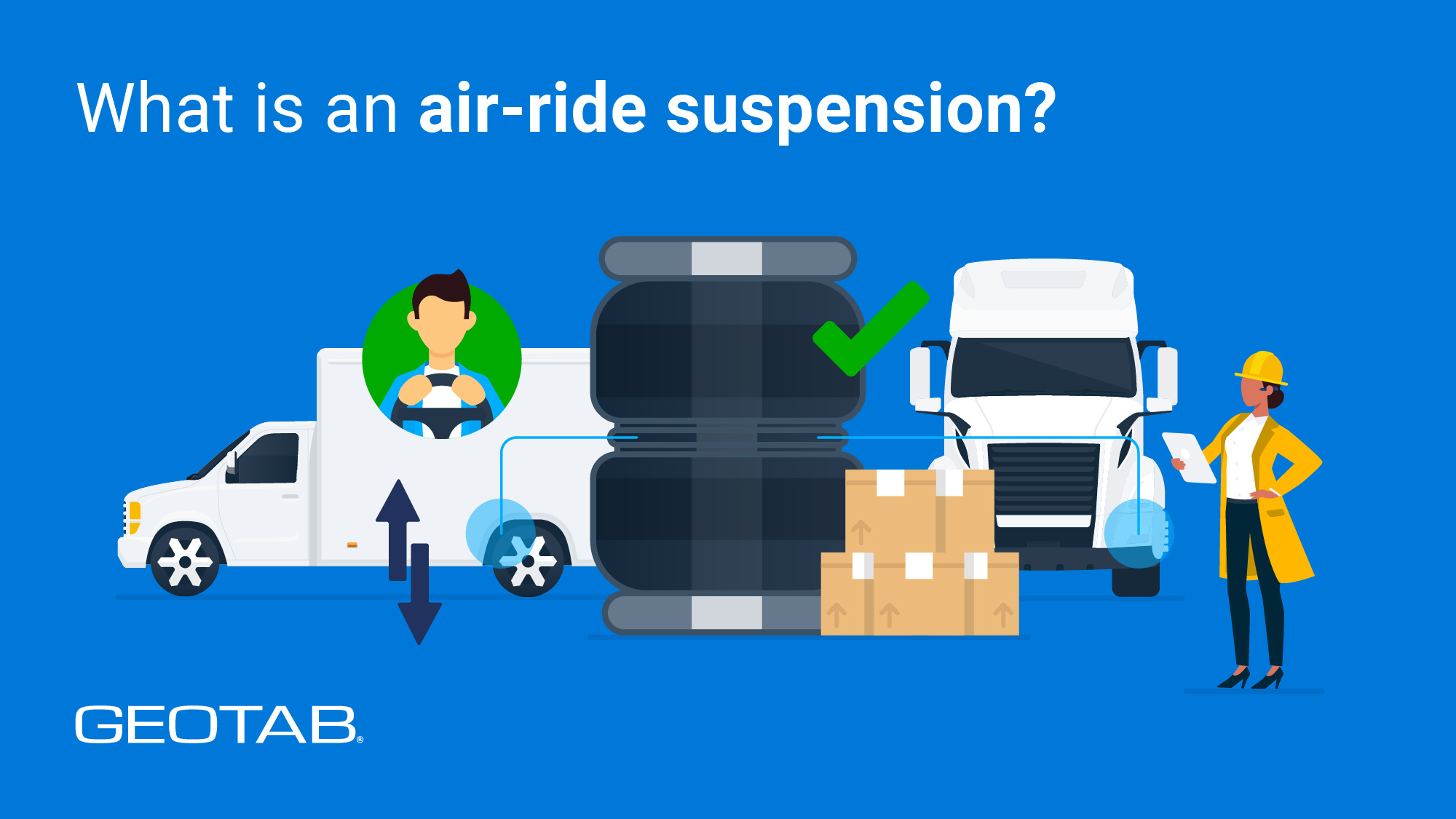What is a reefer trailer?
January 24, 2025
•3 minute read

Key Insights
- A reefer trailer, short for refrigerated trailer, is a specialized type of trailer designed for transporting perishable goods that require a specific temperature to maintain their quality during transit.
What is a reefer trailer?
A reefer trailer, short for refrigerated trailer, is a specialized type of trailer designed for transporting perishable goods that require a specific temperature to maintain their quality during transit. These trailers are integral to the fleet management industry, enabling businesses to transport temperature-sensitive goods over long distances while ensuring their freshness and quality upon arrival.
How do reefer trailers work?
Reefer trailers rely on three primary components to ensure that cargo remains at the desired temperature throughout the journey.
- Insulation: The trailer's walls, floor, and ceiling are all insulated to keep cold air in and warm air out, and they are made from materials with high thermal resistance.
- Refrigeration unit: The heart of the reefer trailer. It works by drawing in air, cooling it down, and then circulating it throughout the trailer. The refrigeration unit is comprised of:
- Compressor: The refrigeration cycle begins here with the compressor pressurizing the refrigerant, increasing its temperature
- Condenser: Releases the heat absorbed by the refrigerant, condensing it back into liquid
- Expansion valve: Regulates the flow of liquid refrigerant into the evaporator coil
- Evaporator coil: The refrigerant evaporates here, absorbing heat from the trailer's air and cooling it down
- Power source (diesel engine): Many reefer units have a dedicated diesel engine to power the refrigeration system independently of the truck's main engine.
Reefer trailers also rely on temperature monitoring technology. This is typically done through the use of temperature sensors, which are placed at various points inside the trailer. These sensors send temperature data to a control unit, which then adjusts the operation of the refrigeration unit to maintain the desired temperature. In modern reefer trailers, this temperature data can also be transmitted to a remote monitoring system, allowing fleet managers to monitor the temperature inside the trailer in real-time and receive alerts if the temperature goes out of the desired range.
What are reefer trailers used for?
Refrigerated trailers transport any type of perishable goods that require temperature-controlled environments to remain fresh and safe.
Food and beverage: Transporting fresh produce, dairy products, frozen foods, meats, seafood, and beverages. This also includes specialty items such as baked goods and chocolates.
Pharmaceuticals: Carrying medications, vaccines, and other medical supplies must be kept at specific temperatures to maintain efficacy and safety.
Flowers and plants: Shipping flowers and plants, which require specific temperature and humidity levels to stay fresh and vibrant.
Hazardous materials: Moving chemicals sensitive to temperature changes and must be kept within a specific range to help reduce degradation or dangerous reactions.
Specialty products: Transporting items like cosmetics, electronics, and art that can be damaged by extreme temperatures or humidity.
Refrigerated trailer compliance
One key role of reefer trailers in fleet management is ensuring compliance with food safety regulations and other industry standards. These regulations often require that perishable goods be transported at specific temperatures to help reduce the growth of harmful bacteria and other microorganisms.
Reefer trailers also record the temperature inside the trailer during transit. This can be used as proof of compliance with regulations in case of inspections or audits. This is particularly important in industries like the pharmaceutical industry, where strict temperature control is required to transport certain drugs.
Types of reefer trailers
There are several types of reefer trailers, each designed for a specific type of cargo. The most common types are:
- Single-temp
- Multi-temp
- Frozen
Single-temp trailers
Single-temp trailers are the most common type of reefer trailer. They are designed to maintain a single temperature throughout the trailer, making them ideal for transporting goods that require the same temperature. The temperature inside a single-temp trailer can typically be set anywhere from -20 degrees Fahrenheit to 70 degrees Fahrenheit, depending on the cargo's requirements.
These trailers are commonly used in the food and beverage and pharmaceutical industries.
Multi-temp trailers
Multi-temp trailers have multiple compartments, each with its own temperature control. This allows them to transport different goods requiring different temperatures in the same trailer. For example, a multi-temp trailer could be used to transport frozen meat in one compartment, dairy products in another compartment, and fruits and vegetables in a third compartment, each at their ideal temperature.
These trailers are more complex and expensive than single-temp trailers, but they offer greater flexibility in terms of the types of goods that can be transported. They are commonly used by grocery stores and other businesses that need to transport various perishable goods.
Frozen trailers
A "frozen" reefer trailer is a specialized refrigerated trailer made for the transport of goods that must be maintained at very low temperatures, generally below 0°F (-18°C). These trailers are crucial for safely moving frozen foods, pharmaceuticals, and other perishable items that demand precise temperature regulation.
Role of reefer trailers in fleet management
Reefer trailers are crucial in fleet management, particularly in industries that deal with perishable goods. They allow businesses to transport temperature-sensitive goods over long distances, ensuring they arrive in good condition at their destination. This helps businesses not only maintain the quality of their products but also comply with food safety regulations and other industry standards.
Reefer trailers also contribute to fleet operations' efficiency. By maintaining the quality of the goods during transit, they reduce the risk of product loss due to spoilage, which can result in significant cost savings. Furthermore, the ability to monitor the temperature inside the trailer in real time allows fleet managers to identify and address any issues promptly, further enhancing fleet operations' efficiency.
Frequently asked question about reefer trailers
Why do they call it a reefer trailer?
"Reefer trailer" is derived from the word "refrigerated" and is a shorthand version commonly used in the transportation industry to differentiate it from trailers that don't have refrigeration capabilities.
How cold do reefer trailers get?
It varies from model to model, but reefer trailers can generally reach temperatures as low as -20°F (-29°C) and as high as 70°F (21°C)
How much fuel does a reefer use per hour?
Typically, 0.5 - 1.5 gallons of fuel are consumed per hour, though this depends on several factors, including load size and conditions.
Other Stories

March 20, 2025
4 minute read

March 20, 2025
3 minute read

What is an air-ride suspension? The pros and cons
March 13, 2025
2 minute read